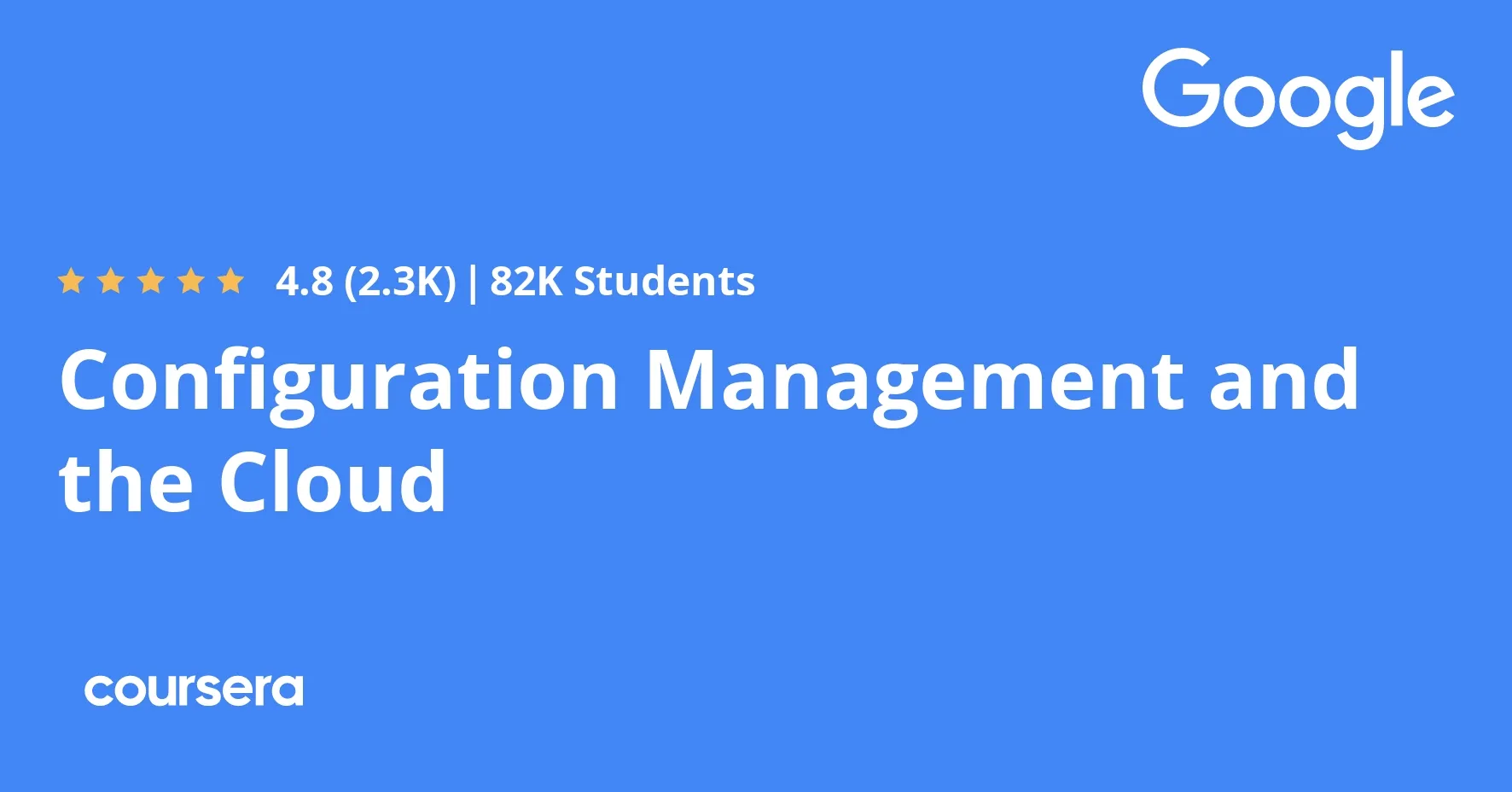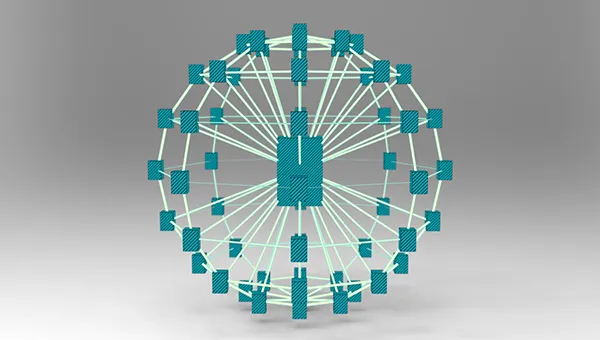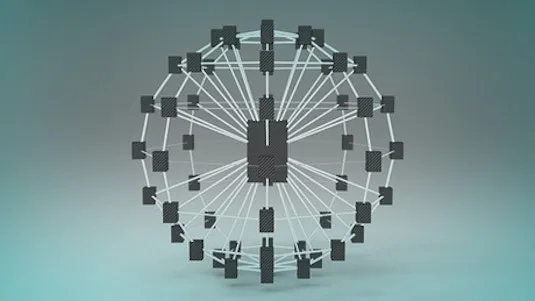
Configuration Management and the Cloud 
This course provides an introduction to configuration management and the cloud, teaching students how to use automation to manage computer fleets, deploy new computers, maintain machines, and manage large-scale changes. ▼
ADVERTISEMENT
Course Feature
![]() Cost:
Cost:
Free
![]() Provider:
Provider:
Coursera
![]() Certificate:
Certificate:
No Information
![]() Language:
Language:
English
Course Overview
❗The content presented here is sourced directly from Coursera platform. For comprehensive course details, including enrollment information, simply click on the 'Go to class' link on our website.
Updated in [March 06th, 2023]
This course provides an overview of configuration management and the cloud. Students will learn to recognize the advantages of configuration management and infrastructure as code. They will also gain an understanding of how Puppet can be used to manage a computer fleet, and how to deploy new virtual machines running in the cloud automatically. Finally, students will learn how to implement changes in a secure manner.
[Applications]
The application of this course can be seen in the ability to use configuration management and infrastructure as code to manage a computer fleet. With Puppet, users can deploy new virtual machines running in the cloud automatically. Additionally, changes should be implemented in a secure manner to ensure the safety of the system.
[Career Paths]
1. Cloud Infrastructure Engineer: Cloud Infrastructure Engineers are responsible for designing, deploying, and managing cloud-based systems. They must be knowledgeable in cloud computing technologies, such as virtualization, containerization, and automation. They must also be able to develop and maintain cloud-based solutions that are secure, reliable, and cost-effective. As cloud computing continues to grow in popularity, the demand for Cloud Infrastructure Engineers is expected to increase.
2. DevOps Engineer: DevOps Engineers are responsible for automating the development, testing, and deployment of software applications. They must be knowledgeable in configuration management tools, such as Puppet, and be able to develop and maintain automated processes. As organizations continue to move towards DevOps, the demand for DevOps Engineers is expected to increase.
3. Cloud Security Engineer: Cloud Security Engineers are responsible for ensuring the security of cloud-based systems. They must be knowledgeable in cloud security best practices and be able to develop and maintain secure cloud-based solutions. As organizations continue to move their data and applications to the cloud, the demand for Cloud Security Engineers is expected to increase.
4. Cloud Architect: Cloud Architects are responsible for designing and implementing cloud-based solutions. They must be knowledgeable in cloud computing technologies, such as virtualization, containerization, and automation. They must also be able to develop and maintain cloud-based solutions that are secure, reliable, and cost-effective. As organizations continue to move their data and applications to the cloud, the demand for Cloud Architects is expected to increase.
[Education Paths]
1. Bachelor of Science in Computer Science: This degree path provides students with a comprehensive understanding of computer science fundamentals, including programming, software engineering, and computer architecture. Additionally, students will learn about cloud computing, networking, and security. This degree path is becoming increasingly popular as cloud computing and automation become more prevalent in the IT industry.
2. Bachelor of Science in Information Technology: This degree path focuses on the application of technology to solve business problems. Students will learn about system design, database management, and network security. Additionally, they will gain an understanding of cloud computing and automation, as well as the principles of configuration management.
3. Master of Science in Cloud Computing: This degree path provides students with an in-depth understanding of cloud computing technologies and their applications. Students will learn about cloud architecture, security, and automation. Additionally, they will gain an understanding of configuration management and infrastructure as code.
4. Master of Science in Information Technology: This degree path focuses on the application of technology to solve business problems. Students will learn about system design, database management, and network security. Additionally, they will gain an understanding of cloud computing and automation, as well as the principles of configuration management.
Course Syllabus
Automating with Configuration Management
Deploying Puppet
Automation in the Cloud
Managing Cloud Instances at Scale
Course Provider

Provider Coursera's Stats at AZClass
Discussion and Reviews
0.0 (Based on 0 reviews)
Explore Similar Online Courses

What Is Business Analysis for Information Technology (IT)

Scrum Master Certification Exam Preparation

Python for Informatics: Exploring Information

Social Network Analysis

Introduction to Systematic Review and Meta-Analysis

The Analytics Edge

DCO042 - Python For Informatics

Causal Diagrams: Draw Your Assumptions Before Your Conclusions

Whole genome sequencing of bacterial genomes - tools and applications

Cloud Computing Concepts Part 1

Introduction to Cloud Identity


Start your review of Configuration Management and the Cloud